Discover Radio Advisory
Radio Advisory

Radio Advisory
Author: Advisory Board
Subscribed: 116,640Played: 532,423Subscribe
Share
© 2026 Advisory Board
Description
A top podcast for healthcare leaders, with over one million downloads, Radio Advisory is your weekly download on how to untangle the industry's most pressing challenges to help leaders like you make the best business decisions for your organization.
From unpacking major trends in care delivery—like site-of-care shifts and the rise of high-cost drugs—to demystifying stakeholder dynamics, to shining a spotlight on priorities that may get overlooked, we're here to help. Our hosts and seasoned researchers talk with industry experts to equip you with knowledge to confront today's unanswered questions in healthcare. New episodes drop every Tuesday. | www.advisory.com
From unpacking major trends in care delivery—like site-of-care shifts and the rise of high-cost drugs—to demystifying stakeholder dynamics, to shining a spotlight on priorities that may get overlooked, we're here to help. Our hosts and seasoned researchers talk with industry experts to equip you with knowledge to confront today's unanswered questions in healthcare. New episodes drop every Tuesday. | www.advisory.com
308 Episodes
Reverse
Infusion services make up a roughly $150 billion market in the U.S., and underpin the financial stability of major service lines, especially oncology. Historically, health systems have enjoyed strong volumes, favorable reimbursement, and access to 340B discounts that keep their infusion business profitable. But rising competition, payer and employer driven site of care shifts, and looming policy changes are putting pressure on what many leaders have relied on as a stable, margin accretive business.
In this episode, host Abby Burns sits down with Advisory Board expert Chloe Bakst to break down what’s actually happening in the infusion market — and why every health system leader should be paying closer attention. Together, they explore how new competitors are capturing leakage you may not even see, how payers and employers are steering patients away from hospital outpatient departments, and how upcoming 340B reforms and Medicare drug price negotiations could reshape the economics of infusion over the next three years. Chloe also shares the strategies forward thinking systems are using to protect their infusion business and prepare for rapidly emerging headwinds.
We’re here to help:
Webinar | The top trends in today’s infusion market
Tool | Market Scenario Planner
Ready-to-Use Resource | Policy Scenario Impact Calculator
Expert Insight | The 3 trends reshaping the specialty drug pipeline today
Podcast | 270: Service line snapshot: What every health leader needs to know
Webinar | Join Optum Advisory experts at this upcoming webinar to learn how optimizing patient access unlocks the value of digital innovations and drives long-term sustainability.
Expert Insight | How data-driven risk reduction protects patients and providers
A transcript of this episode as well as more information and resources can be found on RadioAdvisory.advisory.com.
Once a high growth, high margin line of business for health plans, Medicare Advantage (MA) is now in the middle of a financial reset.
Growth has slowed, margins have turned negative, and federal financial support is eroding — with CMS proposing a near flat reimbursement increase for 2027. As a result, plans are exiting markets, tightening benefit designs, and shifting their focus toward Special Needs Plans (SNPs). At the same time, seniors are facing rising costs, fewer perks, and more frequent plan changes.
To cut through the noise and understand what’s really happening beneath the headlines, host Rachel (Rae) Woods speaks with Advisory Board experts Sally Kim and Aaron Hill about the new divide emerging in MA: between plans equipped to manage the intensive needs of high cost seniors and execute on SNP strategies — and those that will be forced to exit markets or rethink their MA ambitions entirely.
Listen as they break down how MA’s financial and clinical headwinds are reshaping payer–provider relationships — and why future success depends on disciplined focus, deeper provider partnerships, and new investments in technology and cross benefit management.
We’re here to help:
Tool | Medicare Market Explorer
Webinar | Medicare Advantage: Insights on today’s more competitive market
Webinar | Medicare Advantage: The latest on product design and growth
Podcast | Ep. 227: The changing tide of Medicare Advantage
Expert Insight | 3 data-driven insights on Medicare Advantage Star Ratings
Ready-to-Use Slides | Medicare Advantage market outlook
2026 Advisory Board Summit Washington, D.C.
A transcript of this episode as well as more information and resources can be found on RadioAdvisory.advisory.com.
As financial pressure mounts and the healthcare safety net continues to strain, academic medical centers are drawing on their culture of innovation to pursue better outcomes — and narrow life expectancy gaps in the communities they serve.
In this episode of Radio Advisory, host Rae Woods sits down with leaders from Rush University Medical Center to explore how health systems can stay focused on results amid tightening margins, political scrutiny, and ongoing uncertainty in grant funding.
Dr. Omar Lateef, President and CEO of Rush, and Dr. David Ansell, Senior Vice President for Community Health Equity, describe how Rush treats gap-reduction as a long-term operating strategy rather than a moral or messaging exercise. They share practical examples of how local partnerships, targeted investments, and day-to-day operational choices can improve outcomes while still making financial sense — and why avoiding battles over language helps keep the focus squarely on results.
We’re here to help:
How Rush University Medical Center is addressing the root causes of social determinants of health
264: Research funding is being slashed. What’s the real industry impact?
How research funding cuts are impacting healthcare (and how to respond)
12 things CEOs need to know in 2026
Healthcare Policy Updates Timeline
Tool: How policy changes will impact your bottom line
Who gets the chance to be healthy? | Rush
The Rush Center for Community Well-Being at Sankofa Wellness Village | Rush
Health disparities in Chicago and the work to solve them with Rush University Medical Center (AMA)
The Anchor Strategy — A Place-Based Business Approach for Health Equity | New England Journal of Medicine
Rush Signs on as First Partner for Local Laundry Service | Rush
David Ansell Books – New: The Death Gap
2026 Advisory Board Summit Washington, D.C.
A transcript of this episode as well as more information and resources can be found on RadioAdvisory.advisory.com.
Pediatric hospitals are one of the most important segments in the industry to watch right now. Although children’s hospitals make up only 5% of total hospital market share, more than 40% of U.S. children rely on Medicaid, leaving pediatric organizations disproportionately exposed as the Medicaid-related provisions of the One Big Beautiful Bill Act take effect.
The pressures inside pediatric care were mounting even before this moment. After years of outperforming adult hospitals, children’s hospitals have seen margins fall from double digits to just 1% last year. Rising bad debt, higher supply and labor costs, a rapid shift toward lower margin outpatient care, and emerging challenges like declining birth rates and vaccine policy upheaval have created a perfect financial storm. While some of these dynamics are unique to pediatrics, the sector also offers an early warning signal for the rest of healthcare — and an opportunity to translate lessons across both worlds.
In this episode, host Abby Burns and Advisory Board expert Vidal Seegobin break down why pediatric leaders must simultaneously manage immediate-term margin pressure, prepare for a more ambulatory-dominant model, and futureproof their organizations amid shifting demographics. Vidal also shares actionable steps leaders can take now, along with the critical lessons pediatric hospitals offer the wider healthcare ecosystem.
We’re here to help:
5 insights on the state of pediatric hospitals today
12 things CEOs need to know in 2026
The State of the Healthcare Industry in 2026
Read Advisory Board's 2026 research agenda
3 trends shaping healthcare in 2026 (and how to respond)
278: Dr. Emily Oster on fighting misinformation and rebuilding trust in healthcare
277: Patient distrust is costing you. Here’s how to rebuild it.
Learn how outpatient shifts can impact your organization by using Advisory Board’s Market Scenario Planner tool.
Sign up today for this Optum Health Webinar: Scaling your EHR: How Optum Health built an enterprise platform to redefine care delivery.
A transcript of this episode as well as more information and resources can be found on RadioAdvisory.advisory.com.
GLP-1s have quickly become a cornerstone of obesity and metabolic care — but the real challenge isn’t whether they work, it’s how the healthcare system uses them. Leaders are grappling with tough questions around hype, access, safety, cost, and long-term sustainability.
In this episode, recorded live at the 2025 HLTH conference, Rae Woods moderates a candid conversation with four physician leaders:
Angela Fitch, MD: Co-founder and Chief Medical Officer at Knownwell
Florencia Halperin, MD: Chief Medical Officer at Form Health
Spencer Nadolsky, MD: CEO and Founder of Vineyard
Nathan Wood, MD: Director of Culinary Medicine at Yale
Drawing from frontline clinical experience and emerging data, the panel explores why medication only approaches fall short, how wraparound care improves outcomes and adherence, and what it will take for GLP 1s to deliver true value for patients, employers, and payers.
We’re here to help:
Ep. 229: Live from HLTH: What Can’t GLP-1s Do?
Ep. 248: Drugs, surgeries, and shortages: the state of obesity care in 2025
Ep. 222: It's not just GLP-1s; here's what comprehensive weight management looks like
Ep. 279: ‘Food as medicine’: What it is, why it matters, and how to do it right
5 trends shaping pharma strategy for 2026 (and how to adapt)
Innovative solutions to today’s obesity care challenges
From reactive to proactive care: 4 key takeaways about today's COVID-19 landscape
A transcript of this episode as well as more information and resources can be found on RadioAdvisory.advisory.com.
In Part 1 of Radio Advisory’s What CEOs need to know in 2026 series, we explored how responsibility for protecting access is diffusing as the safety net continues to fray. But that’s only one way control over healthcare delivery is shifting. In Part 2, we turn to other subtle — but significant — ways power is moving away from traditional centers of influence.
As utilization and costs rise, purchasers are reaching the limits of their traditional approaches to spend management. In 2026, new players are stepping in as purchasers seek specialized solutions for specific treatments and conditions, increasingly delegating outcomes management to third party vendors. At the same time, a growing ecosystem of advisors and external voices is reshaping the options available to patients and clinicians alike.
In this episode, hosts Rachel (Rae) Woods and Abby Burns are joined once again by Advisory Board experts Natalie Trebes and Max Hakanson. Together, they break down how the diffusion of ownership over rising healthcare costs — and the expanding influence of new players on clinical decisionmakers — are redefining the power dynamics every healthcare leader must navigate.
Missed part one? Be sure to subscribe to Radio Advisory so that you never miss an episode!
We’re here to help:
Explore Advisory Board's 12 Things CEOs Need to Know in 2026 for strategies to help your organization thrive.
281: What CEOs need to know in 2026 (Part 1)
Read Advisory Board’s 2026 research agenda
The State of the Healthcare Industry in 2026
3 trends shaping healthcare in 2026 (and how to respond)
Healthcare Policy Updates Timeline
280: The questions Advisory Board is asking in 2026
[Webinar] State of the Industry: Managing spend amid rising costs
[Webinar] State of the Industry: Shaping care decisions amid diffusing influence
We want to hear from you. What are your challenges? Where are you seeing opportunities? Email us at podcasts@advisory.com
Explore Advisory Board's 12 Things CEOs Need to Know in 2026 for strategies to help your organization thrive. Not a member? Access a complimentary excerpt today.
A transcript of this episode as well as more information and resources can be found on RadioAdvisory.advisory.com.
In 2026, traditional healthcare leaders are facing nontraditional power dynamics. That’s why we’re kicking off the new year with a two-part series focused on the trends and challenges CEOs must be prepared to navigate in the year ahead.
In Part 1, hosts Rachel (Rae) Woods and Abby Burns sit down with Advisory Board experts Natalie Trebes and Max Hakanson to unpack how the shrinking safety net is reshaping access to care – and why every CEO needs to prepare for the ripple effects.
Coming next week: In part two of our What CEOs Need to Know in 2026 series, we’ll take a closer look at the spillover effects resulting from the diffusion of power and control.
Be sure to subscribe to Radio Advisory so that you never miss an episode!
We’re here to help:
12 things CEOs need to know in 2026
Read Advisory Board’s 2026 research agenda
The State of the Healthcare Industry in 2026
3 trends shaping healthcare in 2026 (and how to respond)
Healthcare Policy Updates Timeline
Ep. 280: The questions Advisory Board is asking in 2026
We want to hear from you. What are your challenges? Where are you seeing opportunities? Email us at podcasts@advisory.com
Learn about Advisory Board Research Membership.
A transcript of this episode as well as more information and resources can be found on RadioAdvisory.advisory.com.
In 2026, Radio Advisory is diving into the biggest questions shaping the future of healthcare. We aren’t just here to talk about challenges, we’re here to help you determine your next best action. Our first episode of the year drops Tuesday, January 13. Subscribe wherever you get your podcasts.
We want to hear from you. What do you want to hear about in 2026? Where are you seeing opportunities or facing challenges you think we should explore? Email us at podcasts@advisory.com
We’re here to help:
Read Advisory Board’s 2026 research agenda
State of the Industry: Protecting access amid funding cuts
State of the Industry: Managing spend amid rising costs
Advisory Board is here to do two things: tackle the toughest questions keeping healthcare leaders up at night, and push leaders' thinking on the questions they aren’t asking – but should be. In 2025, we navigated a landscape of major shifts, from policy changes, the growing presence of AI, drug innovations, and more. As we head into 2026, we are keeping that momentum going to deliver the insights you need to stay ahead.
That’s why this week, hosts Rachel (Rae) Woods and Abby Burns pass the microphone to six Advisory Board researchers to preview their top questions and topics on our research agenda for the new year. They’ll unpack what they’re researching, why it matters, and why these topics deserve your attention.
[1:30] Ty Aderhold on cutting through the AI hype
[4:15] Monica Westhead on margin management and hospital efficiency
[7:08] Sally Kim on cutting costs and scaling health plan operations
[9:45] Sebastian Beckmann on prioritizing sustainable growth through smarter forecasting and analytics
[14:08] Kaci Plattenburg on rethinking service line growth strategies
[16:27] Chloe Bakst on navigating the pharmacy policy shakeup
We’re here to help:
Read Advisory Board’s 2026 research agenda
The state of the industry: Key insights for 2026
249: What is 340B, and why is it in the hot seat
267: Care variation reduction: A $100B opportunity
What’s driving — or slowing — service line growth?
270: Service line snapshot: What every health leader needs to know
276: The AI gold rush is changing how humans (and clinicians) make decisions
[Tools] Use Advisory Board tools to inform your strategy for growth, cost control, and more.
We want to hear from you. What are your challenges? Where are you seeing opportunities? Email us at podcasts@advisory.com
Learn about Advisory Board Research Membership.
How the collaborative care model improves access to behavioral healthcare
How We Approach Behavioral Health Integration | evolvedMD
A transcript of this episode as well as more information and resources can be found on RadioAdvisory.advisory.com.
The national spotlight on food and chronic disease management is intensifying, especially given the momentum of the “Make America Healthy Again” movement. This presents an opportunity to finally move the needle on incorporating healthy food and nutrition into care delivery — but our traditional healthcare system is not set up to do this well, or at scale. Healthcare leaders need to learn from the experts who have been doing this work successfully in their communities.
That’s why this week, live from Advisory Board’s Nashville Summit, host Abby Burns speaks with Tomi Ogundimu, Chair of the Board of DC Greens, a nonprofit based in Washington, D.C., and Angela Fitch, MD, Cofounder and Chief Medical Officer of Knownwell, a comprehensive primary care and metabolic health clinic. Our guests will share what it looks like to put the principles of “food as medicine” into practice and how the traditional delivery system can adapt to help realize these principles at scale.
We’re here to help:
DC Greens – Healthy food is a human right.
knownwell, weight-inclusive healthcare for all
Provider-led strategies to address food insecurity
3 keys to effective partnerships with community-based organizations
3 Imperatives for Investing in Successful Community Partnerships
The state of the industry: Key insights for 2026
A transcript of this episode as well as more information and resources can be found on RadioAdvisory.advisory.com.
In last week’s episode, Advisory Board experts explored why leaders have a responsibility to combat rising patient distrust. The challenge? Most providers aren’t prepared — and often haven’t been taught — how to respond effectively.
Distrust isn’t just about debunking misinformation. The combination of low-quality research and panic headlines has made it harder for both providers and patients to separate credible science from misinformation. But there are actionable strategies leaders can use to identify what fuels mistrust and effectively communicate with patients in ways that build confidence.
This week, host Rachel (Rae) Woods sits down with Dr. Emily Oster — economist, Brown University professor, New York Times bestselling author, and Founder & CEO of ParentData — to unpack her approach to effective health communication. Throughout the episode, they unpack why scientific skepticism is growing and why the delivery of health information — not just expertise — is critical to engaging patients.
We’re here to help:
Ep. 277: Patient distrust is costing you. Here’s how to rebuild it.
ParentData by Emily Oster ParentData is a data-driven guide through pregnancy, parenthood, and beyond.
ParentData with Emily Oster | Apple Podcasts
Want to see how upcoming policy changes could reshape the industry and impact your patients? Explore our Healthcare Policy Timeline to stay ahead of key developments and prepare for what’s next.
Vaccine policies keep changing. Here's what you can do to prepare.
2025 Advisory Board December Virtual Summit
Discover how Lifestyle Spending Accounts (LSAs) are transforming employer benefit strategies to support whole-employee health and well-being.
Sign up for our Dec. 16 webinar: The state of the industry: Key insights for 2026
A transcript of this episode as well as more information and resources can be found on RadioAdvisory.advisory.com.
Patient dissatisfaction with the healthcare system has long been a concern — but today, it’s something far more serious: outright distrust. Between 2023 and 2025, the share of Americans who don’t trust their doctor at all to make the right recommendations jumped by eight percentage points. Now, nearly one in six patients lack confidence in their physician.
Let’s be clear: patient distrust may not be the fault of health leaders — but it is absolutely their problem to solve. Rebuilding trust is a business imperative because distrust affects clinical quality, workforce stability, public health, and the financial health of organizations.
In this episode, host Rachel (Rae) Woods sits down with Advisory Board experts Morghen Philippi and Matt Cornner to unpack how the industry reached this point, why trust is a strategic asset, and what health leaders can do to start rebuilding it.
We’re here to help:
Harvard Business Review: The 3 Elements of Trust
Nature: Human neuroscience is entering a new era — it mustn’t forget its human dimension
Want to see how upcoming policy changes could reshape the industry and impact your patients? Explore our Healthcare Policy Timeline to stay ahead of key developments and prepare for what’s next.
Vaccine policies keep changing. Here's what you can do to prepare.
2025 Advisory Board December Virtual Summit
A transcript of this episode as well as more information and resources can be found on RadioAdvisory.advisory.com.
We’re in the midst of an AI gold rush. Every corner of healthcare is racing to harness generative AI for productivity and cost savings. But here’s the catch: healthcare isn’t Silicon Valley. The mantra of “move fast and break things” doesn’t work in a high-risk, complex environment. When it comes to AI in healthcare, safety and effectiveness must come before speed.
This week on Radio Advisory, guest host and Advisory Board digital health expert Ty Aderhold sits down with David Woods, Mike Rayo, and Dane Morey from the Cognitive Systems Engineering Lab at The Ohio State University. Drawing on new research about how AI changes human decision-making, they unpack the risks and realities of AI in healthcare, challenge common misconceptions, and ask critical questions—like whether AI can recognize and communicate its own errors.
Bottom line: There is no risk-free use of AI in healthcare. To truly evaluate safety and effectiveness, leaders must assess AI-human systems as a whole—not in isolation.
Plus, stay tuned for an update on the end of the longest government shut down in U.S. history, and the healthcare programs (still) caught in the crosshairs.
We’re here to help:
Empirically derived evaluation requirements for responsible deployments of AI in safety-critical settings
How AI Can Degrade Human Performance in High-Stakes Settings
The Silicon Valley Way: Move fast and break…aviation safety?
Cognitive Systems Engineering Lab | Innovation at the Intersection of People, Technology, and Work
Your playbook for developing an AI governance strategy
How to succeed using AI: Lessons from 4 leading organizations
[Dec. 4] The healthcare leader's to-do list for successful AI adoption
3 ways to get the most out of contingent nursing workforce partnerships
A transcript of this episode as well as more information and resources can be found on RadioAdvisory.advisory.com.
Nearly 16 million veterans live in the United States, and while 9 million receive care through the Veterans Health Administration, about 40% rely entirely on civilian healthcare. That’s where the challenge begins: many veterans are navigating a system that isn’t designed for their unique health needs.
Veterans outside the VA system often face barriers that lead to poorer outcomes—delays in diagnosis, fragmented care, and overlooked service-related conditions. The healthcare system must do better.
In this episode of Radio Advisory, host Rachel (Rae) Woods talks with Optum Serve experts Christi Kruse and Christine Erspamer about what it takes to close this gap. Drawing on their in-depth ethnographic research, Christi and Christine explore why understanding the veteran patient journey is critical, how to integrate data-driven population health strategies, and the role of publicly available tools and guidelines, along with other practical solutions.
The conversation doesn’t stop at veterans. These insights can help healthcare leaders better serve other vulnerable populations, too.
Stay tuned through the end of the episode for a special message from Optum Serve CEO Ed Weinberg, as he shares how Optum Serve is honoring the lived experiences of veterans and military families, and calls on clinical providers to lead with compassion, consistency, and purpose.
We’re here to help:
Research Study: Caring for Veterans and Military Families
Devoted to Improving Lives Across the Nation | Optum Business
Military & Veteran Health Care Journey: Infographic
Join us for an upcoming State of the Industry webinars, where Advisory Board experts will challenge three long-standing assumptions about the healthcare industry — and reveal the powerful new dynamics reshaping the future.
Learn more about Optum Advisory: Healthcare consulting services
A transcript of this episode as well as more information and resources can be found on RadioAdvisory.advisory.com.
Nurse turnover rates have improved since the pandemic peak, but that doesn’t mean we’re out of the woods: 40% of nurses report that they intend to leave their job within five years. As nurse leaders turn their attention from fighting fires to finding strategic levers for nurse retention, they may be missing a surprising opportunity: career pathing.
Nurse career pathing has traditionally aimed at a core goal: to keep nurses at the bedside for as long as possible. But our research found that, to build a sustainable nursing workforce, nurse leaders need to focus on nurse engagement—not just retention.
This week, host Abby Burns sits down with Advisory Board nursing experts Miles Cottier and Allyson Paiewonsky. They break down the state of the nursing workforce and what it looks like to do career pathing in a way that better balances nurses’ needs with those of the organizations. Hint: the path may look less like a ladder, and more like a branching river.
We’re here to help:
Radio Advisory Nursing playlist
Ep. 245: Headcount might not explain your labor challenges. What will?
Survey insights: Strategic imperatives for a sustainable nursing workforce
New nurses say they're struggling. Here's how to help them.
4 ways to retain early career nurses
Explore how Advisory Board resources can support your organization's journey
A transcript of this episode as well as more information and resources can be found on RadioAdvisory.advisory.com.
In 2025, health systems are facing a relentless set of headwinds—from policy upheaval and shifting demographics to rising costs and rural access challenges. For some organizations, these pressures form a perfect storm.
At Advisory Board’s Chicago Summit, host Rachel (Rae) Woods sat down with MaineHealth COO Kelly Elkins to explore how the $4B, 13-hospital Academic system is navigating these pressures without defaulting to survival mode. MaineHealth has achieved three consecutive years of $100M margin improvement by focusing on operational efficiency, scenario planning, and a three-lane growth strategy: strengthening core services, expanding into ambulatory care, and investing in adjacent businesses.
Learn more about their approach—including their partnership with Optum Advisory—to sustain and scale care delivery across Maine and New Hampshire.
We’re here to help:
MaineHealth | Working together so our communities are the healthiest in America
Healthcare Policy Updates Timeline
One Big Beautiful Bill Act: Understanding the healthcare impacts
Strategic Planner's survey 2025
Want to be at our next live Radio Advisory recording? Learn more about upcoming Advisory Board events.
A transcript of this episode as well as more information and resources can be found on RadioAdvisory.advisory.com.
To make philanthropy a reliable revenue stream, health systems need more than just generous donors—they need strategy, structure, and sustained investment.
In this episode, Abby Burns speaks with Advisory Board philanthropy expert and founder of Twin Point Insights, Erin Lanahan, about how not-for-profit health systems can build high-performing fundraising programs. They explore the “four Cs” of effective philanthropy—clear expectations, consistent resourcing, compelling priorities, and committed allies—and unpack how leaders can apply these principles to boost ROI, strengthen donor relationships, and ensure long-term financial sustainability.
We’re here to help:
Healthcare Campaign Survey #1: Campaign Context
4 imperatives for successful fundraising campaigns
[Ongoing research] Twin Point Insights: Healthcare Campaign Survey Series
[Roundtable] HOME - Modernizing grateful engagement in a time of healthcare transformation
[On-demand webinar] What the future of health system growth means for philanthropy leaders
[On-demand webinar] Using market data to inform your philanthropy strategy
[On-demand webinar] State of the industry: Exploring the future of healthcare philanthropy
Key findings from the Medicare Advantage vision insurance consumer survey
Oral oncolytics: Strategies for improving adherence and persistence
A transcript of this episode as well as more information and resources can be found on RadioAdvisory.advisory.com.
Ochsner Health has been pushing the envelope on value-based care for decades. The New Orleans-based system has succeeded in driving significant cost savings—while improving quality— states that traditionally rank lower in America's Health Rankings The question is: how do they do it?
This week, host Abby Burns invites Ochsner Health Network’s Eric Gallagher, CEO and Dr. Beau Raymond, CMO to unpack their approach to building out a successful value-based care engine. Throughout the conversation, they share:
How they measure success (and what they’ve achieved)
How they evolved their system to the one they have in place today
What true payer-provider partnership does—and doesn’t—look like to them
How they are fine-tuning their value-based care tactics to meet oncoming headwinds
We’re here to help:
Expert Care in Louisiana and Beyond | Ochsner Health
How Ochsner Health grounded its VBC success in a culture of innovation
Radio Advisory Value-Based Care playlist
Ep. 243: What’s now and what’s next in value-based care
Ep. 250: VBC success is possible. Here's how Advocate Health does it.
Value-Based Care landing page
Help manage the long-term effects of COVID-19 with timely care
A transcript of this episode as well as more information and resources can be found on RadioAdvisory.advisory.com.
Each year, Advisory Board delivers an update on the most significant trends shaping service line strategy – identifying exactly what service line and strategy leaders should prioritize in the year ahead.
In this episode, host Rae Woods is joined by Advisory Board experts Lindsey Paul, Kristin Strubel, Gabriela Marmolejos, and Ellie Wiles to unpack the universal challenges specialties are facing as we head into 2026.
Throughout the conversation, you’ll hear how access constraints, workforce pressures, policy changes, and innovative payment models are influencing key service lines—including oncology, cardiovascular, women’s health, and neurology.
Looking for insights on a specific service line? Jump ahead using the timestamps below:
1:26 – 6:50: Lindsay Paul on oncology
6:51 – 12:14: Kristen Strubel on cardiovascular
14:08 – 22:29: Gabriela Marmolejos on women’s health
22:30 – 27:58: Ellie Wiles on neurology
We’re here to help:
Oncology service line outlook – 2025
Cardiovascular service line outlook – 2025
Women’s health service line outlook – 2025
Neurosciences service line outlook – 2025
Orthopedics service line outlook – 2025
Watch our member testimonials and learn about upcoming Advisory Board events
Blood-based colorectal screening: A closer look for health plans
A transcript of this episode as well as more information and resources can be found on RadioAdvisory.advisory.com.
In this special episode of Radio Advisory, recorded at 9:30 a.m. ET on Oct. 1, 2025, host Rae Woods walks through two major healthcare policy disruptions: the federal government shutdown and the Rural Health Transformation Program.
Rae explains the immediate implications for care delivery and funding as Medicare telehealth and Hospital-at-Home waivers expire and debates over ACA tax credits and Medicaid work requirements stall in Congress.
She also unpacks new guidance from CMS on the $50 billion Rural Health Transformation Program, outlining what leaders must do to apply for funding before the November 5th deadline and best position themselves to support their rural communities.
We’re here to help:
Healthcare Policy Updates Timeline
Health policy roundup: CMS opens applications for $50B rural health fund
A transcript of this episode as well as more information and resources can be found on RadioAdvisory.advisory.com.


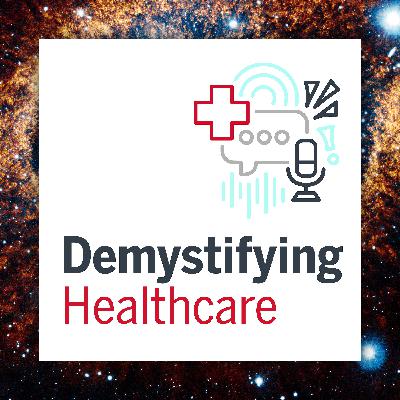
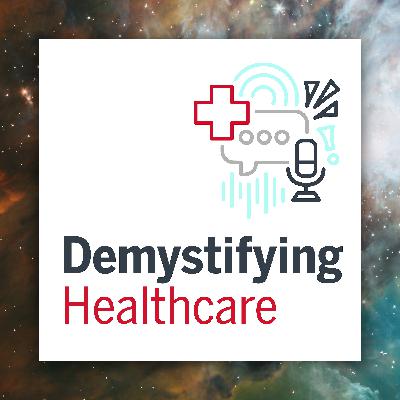

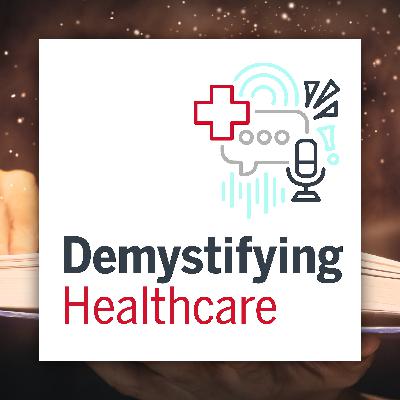
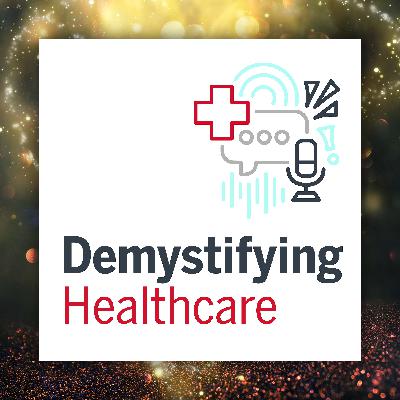


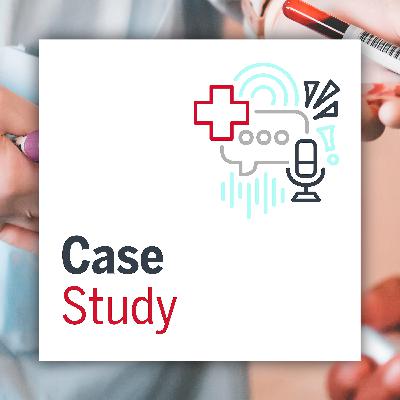
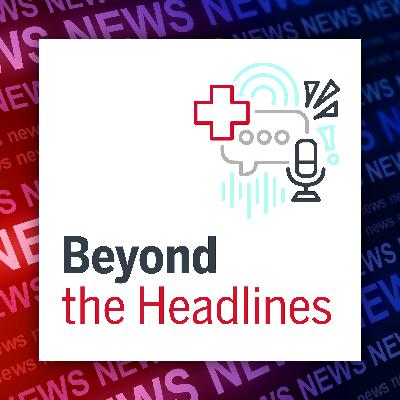



At Micet Craft, we recognize that each brewery has unique requirements. That’s why we offer custom solutions tailored to fit your specific brewing needs. Our expert team collaborates with you to design equipment that optimizes your workflow while maintaining high quality. Whether you’re launching a startup or expanding an existing operation, Micet Craft provides the perfect brewing equipment to elevate your craft.https://www.micetcraft.com/fermentation-tank/
Thor Sound Booster
sogood voice the better peace world..♥️🎉🧿